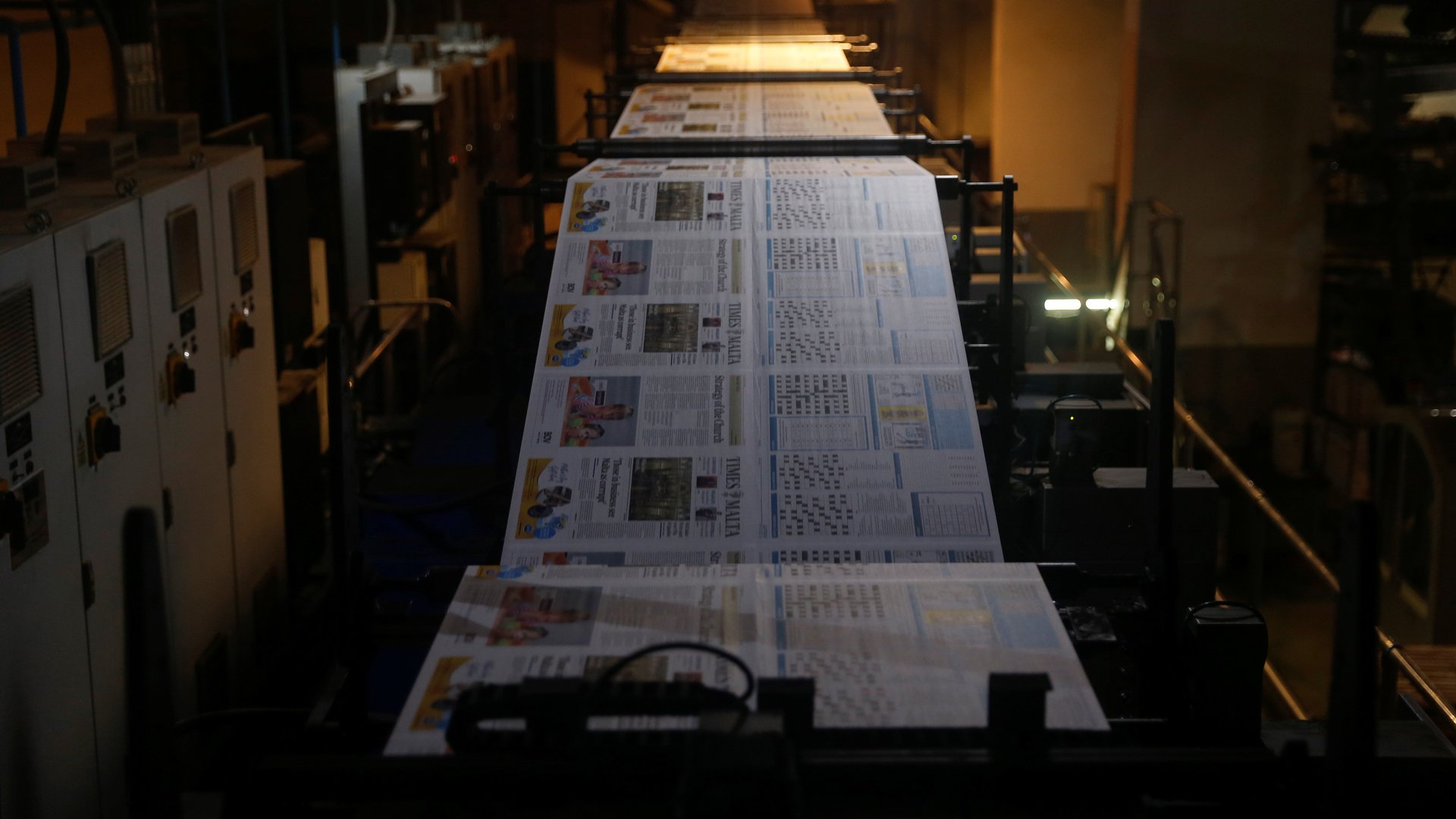Fake news-wary urban Indians trust their inner circle—and government mouthpieces—the most
When it comes to trusting news sources, proximity and familiarity of the source matters in India.


When it comes to trusting news sources, proximity and familiarity of the source matters in India.
Most urban Indians (78%) consider their inner circle, or people known to them personally, as the most reliable source of news, ahead of formal media sources. Newspapers and magazines (77%) stand a close second when it comes to trustworthiness, followed by television and radio (71%), while online platforms lag behind (66%).
These findings are part of a survey titled “Trust in Media” published by the Paris-based market research firm Ipsos yesterday (July 03). The survey covered 19,541 people in 27 countries.
“We tend to trust people we are close to, the most. It now extends to news and information displacing all forms of media, relegating them below personal relationships,” said Parijat Chakraborty, country service line leader for Ipsos’s public affairs, corporate reputation, and customer experience.
Around 3 in 10 Indians doubt the efficacy of online news. Also, 53% of Indians mistrust information received from people they know mainly through the internet.
Yet, Indians say all media outlets, including online platforms, have the public good in mind when they disseminate information.
Fake news menace
The Ipsos survey underlines the rising menace of fake news. Indians believe a fair amount of misinformation exists across all media outlets.
Globally, the fake news menace has led to an erosion in the media’s trustworthiness, Ipsos said.
India, though, is an outlier here. People’s trust has only increased in the past five years. Saudi Arabia, South Africa, Malaysia, and China are the only other nations that showed this trend, among countries surveyed.
Indians also consider public broadcasters as a more reliable source of news than private broadcasters. The majority of Indians (65%), consider public TV and radio broadcast as an important and necessary service.
“Public broadcasters are controlled by the government, so they are trusted more for authentic news and for government announcements and policy changes, making them an intrinsic part of people’s lives,” explained Chakraborty.